Challenging relationships: How to recognize them & Tools to manage them
In Toronto, from March 2020, with a few breaks, to June 2021, workplaces and schools closed to mitigate the spread of COVID-19. People’s lives, their family, and work relationships were profoundly affected. Pressure increased on many couples, who found themselves together 24/7, adapting their homes into shared workspaces, learning environments, gyms, and daycare centers.
Parents were homeschooling their children while also working from home, often sharing desk space, internet and oxygen. Inequality in gender roles was often magnified around housework and the homeschooling of children. These conflicts were at the forefront while parents continued paid work from home. Some families faced unemployment and reduced incomes while spending far more time than usual with their partner or spouse.
Céline Le Bourdais, distinguished McGill Professor of Sociology, pointed out, “confinement at home in this uncertain context may have created new tensions and/or amplified previous conflicts.” In short, in addition to ongoing uncertainties and anxieties related to the coronavirus itself, these significant work and family life adjustments led to increased stress, especially in already challenging relationships. (source: The Vanier Institute of the Family)
Challenging relationships
At times relationships are challenging in marriages, partnerships, families, friendships, and workplaces. There is an increased sense of insecurity and feelings of being persecuted, controlled, dominated by another person. The perception is that these relationships affect the weak, downtrodden or insecure. Yet strong, healthy, independent people can also find themselves in the grip of a challenging relationship.
Signs of a Challenging Relationship
Relationships are always on a spectrum, not black and white, all bad or all good. Given your values and upbringing, you need to assess if the difficulties outweigh the happy, fulfilling times in your relationship.
Are you experiencing these signs of a challenging relationship?
- Harsh criticism- feelings of being unwanted, unloved, or inferior
- No equal say in decisions
- Feeling controlled or manipulated
- Physical, mental, or psychological abuse
Are you experiencing two or more of these subtle signs of a challenging relationship:
- Feeling devalued and depleted. giving more than you’re getting
- Feeling a toll on your self-esteem over time
- Feeling unsupported, misunderstood, demeaned, or attacked
- Feeling depressed, angry, or tired after speaking or being with the other person
- Feeling like you have to walk on eggshells to keep from becoming a target of anger
- Feeling like you are always to blame
Notice if there is a repetitive pattern of the above behaviours and if t the other person does not express regret or apologize. This could be a signal that talking to a trusted person about this situation would be helpful.
How to deal with Challenging relationships
Depending on the severity of the situation:
- Set up firm boundaries to protect your mental health.
- Try to hear the voice of a “good person inside you”.
- Don’t play their game.
- Take space and try to be light.
Setting personal boundaries:
- Permit yourself to prioritize your individual needs.
- Plan and practice what to say.
- Brainstorm before the meeting about the topics you want to or discuss.
- Try to maintain a warm tone. Being polite and diplomatic can soften the blow.
- Avoid an elaborate explanation when establishing a boundary.
Kind Inner Voice: Good Internal Object
What would someone who loves you say about you or your interactions?
A good internal object is the inner voice of someone from your childhood who loves/loved you.
Good internal objects are internal representations of a “caring, loving person of significant influence”, such as your parents, siblings, grandparents, teachers, therapists, who thought well of you and believed in you.
Internal objects achieve permanence and strong emotional associations as you grow up.
Good internal objects can protect you when you encounter challenging relationships. When you find yourself in a challenging interaction, you can talk to yourself and ask yourself,
“What would my good parent/ siblings/ grandparents/ teachers/ therapist tell me if they could see this situation? Would she say this is my fault, that I should accept this hot potato thrown my way?”
The hot potato
In some relationships, the other person might try to make you feel responsible for their feelings and find all the fault with you. We are all accountable for the way we feel. Yet, it is easy to accept the “Hot Potato.” Do not accept the hot potato!!!!
Don’t play their game
If they try to make you responsible for the way they feel, focus on yourself. If they act in a passive-aggressive way, ignore them. If they try to belittle you in front of your friends, don’t take it seriously. When they see that this is not the way to do things, they may change their approach.
Take space
Some conflicts with co-workers, neighbours, or spouses may be best left alone. Knowing when to let it go is essential.
Ask yourself, Am I too emotional right now? If you’re angry or upset or your partner or colleague, it may not be a good time to engage. As the conflict escalates, you may be hurtful, and you may not be able to disengage.
Walk away like the song from the ’60s reminds us. “Just walk away, Renee”
Be the light
If you are reading this, it means you realize that there is a problem, and you want to improve the situation and grow. That is the first step. Don’t let the other person’s negativity shut your light. Focus on being a light and motivation.
Takeaways
Sharing your feelings about being in a challenging relationship is not easy, but it will be easier to develop more ideas to deal with the situation if you can talk to someone you trust. If you feel that someone impacts your mental and physical well-being, take a step back, assess the situation, and consider seeking help.





